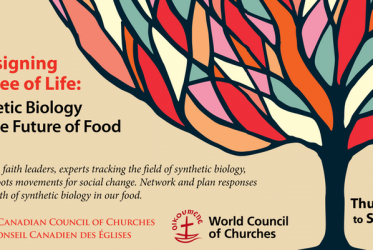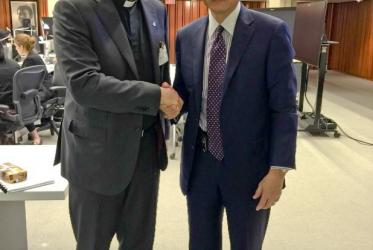Displaying 1 - 12 of 12
WCC well-represented in Religions for Peace leadership
07 October 2019
How can you help refugees?
11 October 2018
Responsible agriculture investments theme of WCC session
16 October 2017
“Good healthcare a right, not a privilege,” says WCC-EAA
11 October 2017
Redesigning the Tree of Life: Synthetic Biology and the Future of Food
02 - 04 November 2017
Toronto, Canada
Momentum builds for ban on nuclear weapons
16 December 2014







